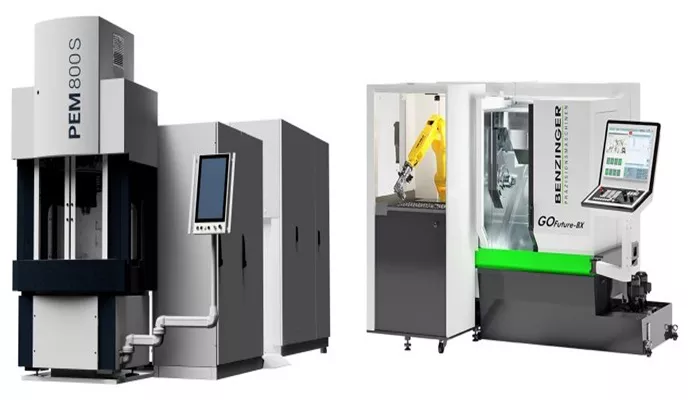A refrigerator compressor is the heart of the cooling system. If it fails, the refrigerator stops cooling properly. For GE refrigerators, compressor replacement costs can vary based on model, labor, and additional parts needed. This guide provides a detailed, professional breakdown of GE refrigerator compressor costs, including:
- Types of compressors used in GE refrigerators
- Average cost of a new compressor
- Labor and installation expenses
- Factors affecting the total cost
- When to repair vs. replace
- Tips to extend compressor life
By the end, you’ll have a clear understanding of what to expect when replacing a GE refrigerator compressor.
Understanding the Role of a Compressor in a GE Refrigerator
The compressor is a critical component in the refrigeration cycle. Its main functions are:
- Compresses refrigerant gas, increasing its pressure and temperature.
- Circulates refrigerant through the condenser, evaporator, and expansion valve.
- Maintains consistent cooling inside the fridge and freezer.
When the compressor fails, the refrigerator loses cooling ability, leading to food spoilage.
Common Signs of a Failing Compressor
- Warm fridge/freezer (even if the light and fan work)
- Loud humming or clicking noises (compressor struggling to start)
- Frequent cycling on/off (overheating issue)
- High electricity bills (compressor running inefficiently)
If you notice these symptoms, the compressor may need replacement.
Types of Compressors Used in GE Refrigerators
GE refrigerators use different compressor types, each affecting cost and performance:
Reciprocating (Piston) Compressors
- Most common type in older GE models.
- Uses a piston-cylinder mechanism to compress refrigerant.
Pros: Affordable, simple design.
Cons: Noisier, less energy-efficient.
Rotary Compressors
- Found in mid-range to high-end GE models.
- Uses a rotating mechanism (no pistons).
Pros: Quieter, more efficient.
Cons: More expensive to replace.
Inverter Compressors (Variable Speed)
- Used in modern, energy-efficient GE refrigerators.
- Adjusts speed based on cooling demand.
Pros: Energy-saving, longer lifespan.
Cons: Highest replacement cost.
The type of compressor impacts price, availability, and labor costs.
Average Cost of a GE Refrigerator Compressor
The cost of a new compressor depends on:
- GE refrigerator model
- Compressor type (reciprocating, rotary, inverter)
- Warranty coverage
- Labor charges
Compressor Unit Cost (Parts Only)
| Compressor Type | Price Range (USD) |
|---|---|
| Reciprocating Compressor | 150–400 |
| Rotary Compressor | 300–600 |
| Inverter Compressor | 500–1,000+ |
Note: OEM (Original Equipment Manufacturer) parts are more expensive than aftermarket options.
Labor Costs for Installation
Average labor cost: 200–500
Total replacement cost (parts + labor): 350–1,500+
Factors affecting labor costs:
- Refrigerator model (side-by-side, French door, etc.)
- Technician’s experience
- Location (urban areas cost more)
Additional Costs to Consider
Replacing a compressor may involve extra expenses:
ARefrigerant Recharge
- If the system is opened, refrigerant must be recovered and refilled.
- Cost: 50–150
Other Replacement Parts
- Start relay & overload protector (20–50)
- Filter dryer (15–40)
- Sealed system repair (if leaks are found)
Diagnostic Fee
Some technicians charge 50–100 just to diagnose the issue.
Is It Worth Replacing a GE Refrigerator Compressor?
Replacing a compressor is a major repair. Consider these factors before deciding:
Age of the Refrigerator
- If the fridge is over 8-10 years old, buying a new unit may be more cost-effective.
- Newer models are more energy-efficient.
Warranty Coverage
- GE offers 10-year sealed system warranty on some models (covers compressor).
- Check your warranty before paying for repairs.
Repair Cost vs. New Refrigerator Cost
If repair costs exceed 50% of a new fridge’s price, replacement is better.
How to Extend the Life of Your GE Refrigerator Compressor
To avoid premature compressor failure:
Proper Maintenance Tips
- Clean condenser coils every 6 months (dust buildup causes overheating).
- Ensure proper ventilation (keep fridge 2-3 inches from the wall).
- Avoid overloading the fridge (restricts airflow).
Avoid Common Mistakes
- Don’t set the thermostat too cold (increases compressor workload).
- Check door seals (warm air leakage forces the compressor to work harder).
Conclusion
GE refrigerator compressor costs range from 150–1,000+ (parts only). Total replacement cost (with labor) is 350–1,500+. Inverter compressors are the most expensive to replace. Consider fridge age and warranty before deciding on repair vs. replacement. Regular maintenance can prevent early compressor failure. If your GE refrigerator’s compressor fails, consult a certified technician for an accurate diagnosis and quote.

